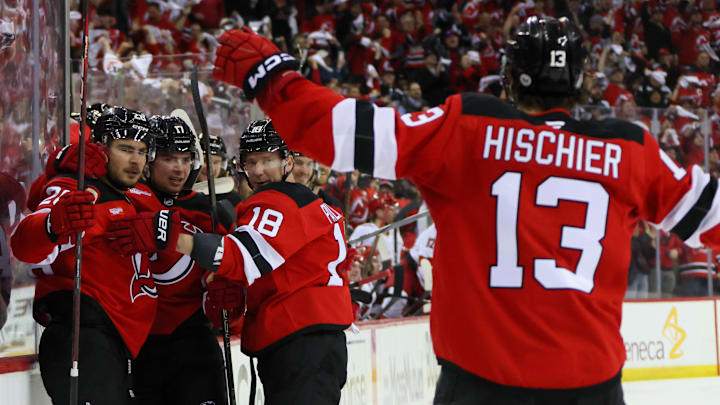A new report says that certain parts of the new NHL CBA will come with cascading implementation. What that means is some of the agreements in the CBA will go into effect now, while others will go into effect at later dates, with the last of the agreements going into effect on September 16, 2026.
Arguably, the most important aspect of the new CBA is the playoff salary cap. Teams who happen to win the Stanley Cup always seem to be over the regular season salary cap, with superstars like Mark Stone, Nikita Kucherov, and Matthew Tkachuk missing large portions of the regular season to open LTIR cap space for their teams only to be available Game 1 of the Stanley Cup Playoffs.
Most expected that to go into effect for the 2026-27 season, but to the surprise of many, that will actually be the case for the 2026 Stanley Cup Playoffs. That means teams have to be under the $95.5 million hard salary cap.
Teams can have a roster that’s over the salary cap, especially since teams will be calling up Black Aces from the AHL, but the night-to-night lineup must be under that threshold.
That could impact the Devils this season, who already have Johnny Kovacevic, who will likely go on long-term injured reserve to start the season. He isn’t expected to miss the entire season, but if other LTIR injuries allow him to return to the lineup without losing money, the Devils would have to make even harder decisions on their roster come playoff time.
Other changes include the changes to contract structures, which the Devils are paying very close attention to. Today, they can agree to an eight-year deal for their internal roster who are eligible for extensions, and they can give free agents a seven-year deal. In the new agreement, both drop by a year, so extensions can only go seven years, and free agents are only eligible for six-year deals.
New CBA changes are going to impact the New Jersey Devils immediately
The Devils care about this for a multitude of reasons. First, if they want to kick the can down the road, they can sign Luke Hughes to a one-year deal then sign him to an eight-year deal after January 1st.
Another contract change that goes into effect immediately is the deferred compensation that some teams were using to lower cap hits. The Devils had not used that tactic just yet, but it might have been something they considered for Luke Hughes’ contract.
The restrictions on double retention, a tactic the Devils have been a part of in the past, also goes into effect immediately. That means a team can’t trade a player to, say, the San Jose Sharks with 50% of the contract retained, just to cover 50% of the remaining contract to a third team, allowing them to get the deal for just 25% of actual cap hit owed.
You can read the full list of timelines for the new CBA at Puck Pedia.
